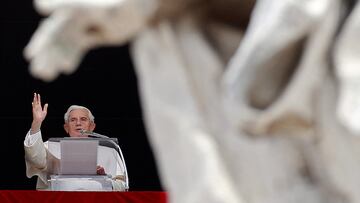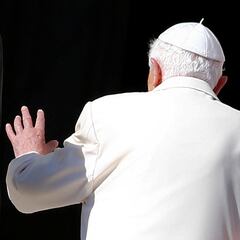When and where will the funeral of Pope Benedict XVI take place? Date and time
The passing of the former pope will be followed by days of mourning before the official funeral with heads of state expected to be in attendance.


It has been announced that former pope Benedict XVI’s funeral will take place on 5 January, 2023. The current Pope, Francis, will preside over the funeral. This will be unusual as normally it is the dean of the College of Cardinals who organises the funeral as it is the sitting pope who has died.
Requiescat in Pace pic.twitter.com/ve4cRnELsf
— Westminster Diocese (@RCWestminster) December 31, 2022
However the format of the funeral has not yet been announced or if international figures will be invited. This is likely as Benedict was not just the head of the Catholic church but also head of state of the Vatican City.
Peter Seewald, benedict’s biographer, expects the former Pope will be buried in the tomb that once held his predeccessor John Paul II, before the body was moved to the Altar of St. Sebastian after his beatificaion.
How have previous papal funerals been managed?
When a sitting pope dies there is a nine day mourning period before the funeral. This was reflected clearest at the funeral of pope John Paul II. Thousands of pilgrims queued for hours to pay their respects.
And while it is unusual for a retired pope to be buried there are certainly precedents set in other parts of the Catholic church, such as the burial of retired bishops and archbishops.
“Rites and ceremonies after the death of a reigning pope are clear and already well elaborated,” said Ulrich Nersinger, who studies the Vatican and has worked for the papal ceremonial office. “The big problem is: What do you do if it’s a pope emeritus who dies? That’s a new experience.”
Related stories
Historians are interested in what the funeral will entail due to it’s historical significance.
“It is an extraordinary sight since we haven’t had a papal resignation in 600 years,” Christopher Bellitto, a history professor at Kean University in New Jersey said. “It speaks both to the continuity of papal tradition in the line of St. Peter but also to a new world where papal resignations will be less rare, maybe even common.”
The queue in St Peter’s Basilica on the final day of #PopeBenedictXVI’s body lying in state. pic.twitter.com/wT9zI373zm
— Christopher Lamb (@ctrlamb) January 4, 2023

